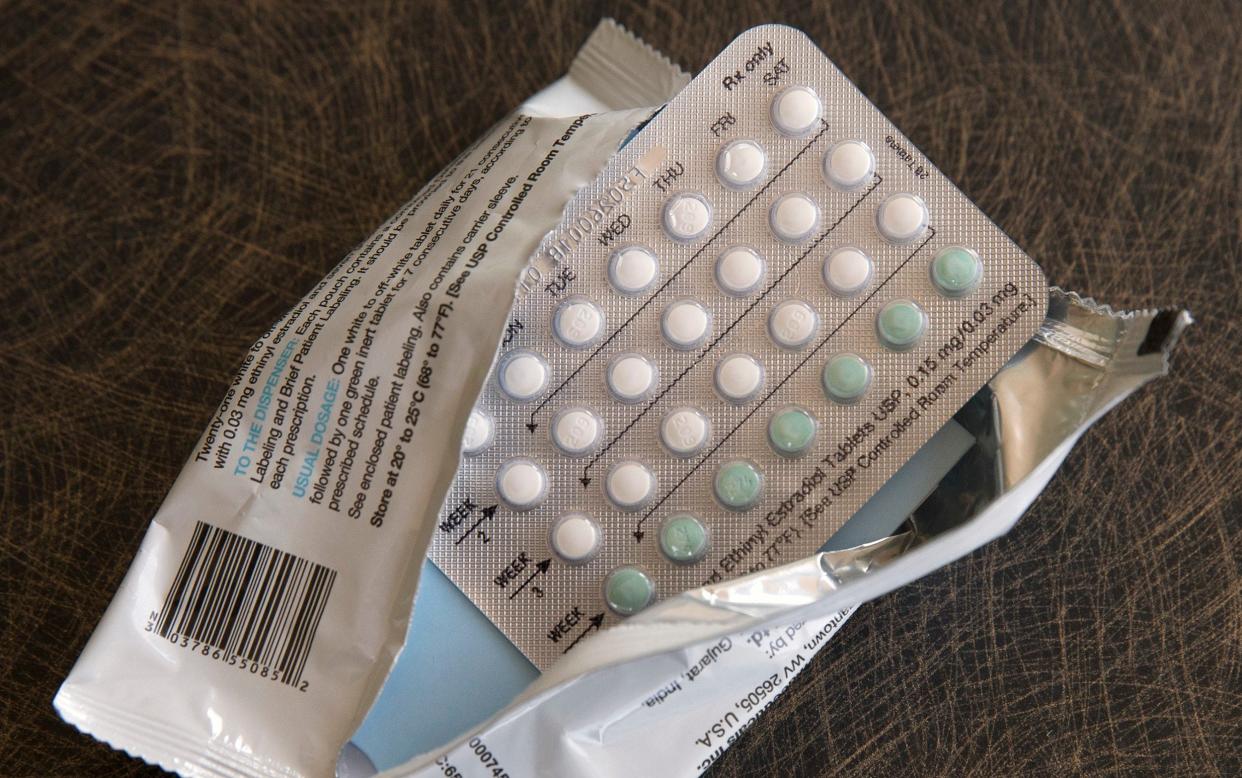Contraceptive pill and coil increase breast cancer risk by one quarter

Modern forms of hormonal contraceptives increase the risk of breast cancer by around one quarter, landmark research by Oxford University has found.
The study of almost 30,000 women below the age of 50 tracked cases of the disease among those taking a range of contraception - including progestogen-only drugs, which have become increasingly popular.
The numbers taking such drugs has close to doubled in the last 20 years, with around three million women now taking them.
Meanwhile, the numbers on traditional combined pills have halved, leaving equal numbers now on each.
The popularity of the new generation drugs has partly been driven by hopes they would carry fewer health risks, with evidence suggesting they are less likely to cause strokes and blood clots.
But researchers found that progestogen-only drugs and coils carry at least equal risks as the combined pill, when it comes to breast cancer, in women below the age of 50.
Increased risk is ‘transient’
One in three women will be diagnosed with breast cancer over their lifetime.
However, experts cautioned that the vast majority of cases occur above the age of 50 - saying the absolute risk of the disease remains “very small” in younger women.
Overall, the increased cancer risk for women taking progestogen-only drugs was 26 per cent, compared with 23 per cent for those on combined pills.
This rose to 32 per cent among those with progestogen-releasing intra-uterine devices, while those with hormonal implants saw an increased risk of 25 per cent.
Scientists stressed that the overall risks of breast cancer among young women remain low.
They said the increased risk was “transient” - and largely disappears after stopping contraception.
Other benefits offset risk
Breast cancer is the most common cancer in the UK, with around 56,000 cases annually. Of those around 10,000 involve women below the age of 50.
Researchers said those taking hormonal contraception should take into account the increased risk of breast cancer, but said this would often be offset by other benefits of the drugs, including a long-term lowered risk of ovarian cancer and womb cancer, as well as their contraceptive function.
Overall, women who took such pills for 15 years had a 2.2 per cent risk of breast cancer by their late 30s, against a two per cent risk among those who had not taken hormonal contraception. Among those in their late 20s the risk rose from 0.5 per cent to 0.57 per cent
The research went on to combine the latest findings with 12 earlier trials on progestogen-only preparations.
Prof Gillian Reeves, professor of statistical epidemiology and director of the cancer epidemiology unit, Oxford Population Health, University of Oxford, said: “When the results from these studies were combined, we found a significant 20 to 30 per cent excess risk of breast cancer associated with each type.”
Researchers stressed that the absolute risks were small, with little evidence of much increased risk long after women come off taking the pill, and no excess risk after 10 years.
Prof Reeves said: “It’s not our place to tell women what to do. Our place is to do the research and report the findings. And nobody wants to hear that something they’re taking is going to increase their risk of breast cancer by 25 per cent. But the main purpose of doing this research was really to fill a gap in our knowledge.”
She described the increase in absolute risk as “very small” and said they should be balanced against the many benefits of the pills - including long-term protection against other forms of cancer.
In the study, published in PLOS Medicine, researchers analysed data from 9,498 women who developed invasive breast cancer between the ages of 20 to 49 and 18,171 closely-matched women without breast cancer who acted as controls.
The data found that around two thirds of women in their 20s had a prescription for hormonal contraception, dropping to around one quarter of those in their 40s.
Among older women on hormonal contraception, a larger proportion were on progestogen-only drugs.
Kirstin Pirie, statistical programmer at the cancer epidemiology unit, Oxford Population Health, University of Oxford, said the increased breast cancer risk of around 20 to 30 per cent while taking the pill compared with an increased risk of around 10 per cent per alcoholic drink consumed daily.
Risks associated with drinking were more likely to increase risks over a lifetime, she suggested, given such habits tend to “persist” whereas contraceptive use stops.
“Every daily drink increases the relative risk by 10 per cent. So two drinks a day is a 20 per cent risk compared with someone who doesn't drink,” she said.
Dr Kotryna Temcinaite, head of research communications at Breast Cancer Now, said: “This research suggests there is a small increased risk of developing breast cancer for women while they are using, or soon after stopping, a newer progestogen-only contraceptive.
“The level of risk is around the same as for the older combined pill containing oestrogen and progestogen, which we’ve known about for some time. For both types of contraceptives, if you stop using them, this added risk of breast cancer reduces over time.
She added: “Breast cancer is rare in young women. A slight increase in risk during the time a woman uses hormonal contraceptives means only a small number of extra cases of the disease are diagnosed.”

 Yahoo News
Yahoo News 
